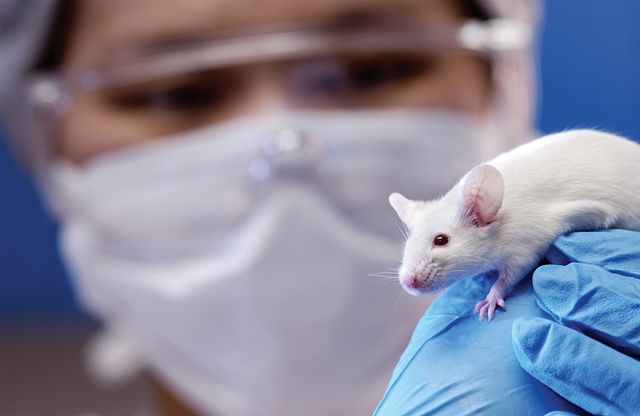
Scientists ‘Breed’ Two Male Mice to Create ‘Gayby’ Mouse

Of all the issues in the world waiting for solution-oriented scientific research, Japanese scientists chose to work on something that defies nature and raises ethical questions – create a gayby, a baby without any female cells involved in its creation.
The research has raised some ethical questions and concerns.
On March 8, at the Third International Summit on Human Genome Editing in London (UK), Katsuhiko Hayashi of Japan’s Kyushu University announced the first case of the development of mammal oocytes exclusively from male cells.
Oocytes, commonly called eggs, are naturally produced in females only, and when combined with sperm cells, which are produced in males, they develop into embryos. The egg cell has only X chromosomes as opposed to the sperm cell, which has one X and one Y chromosome.
To achieve the production of an egg from male cells, skin cells from two male mice (referred to as biological fathers) were taken and passed through a number of “intricate steps” to edit out the Y chromosome from each and create a single cell with both X chromosomes. The egg cell thus created was fertilized with regular male mice sperm and implanted into female mice where they could grow into babies.
Creating a biological offspring between same-sex couples has been a scientific and political fetish of the left. After failing to achieve actual male pregnancy – for obvious reasons – liberals attempted to change the definition of “man” so as to include “trans-men,” that is, biological women who identify as men. A number of liberals have since claimed that “men” can get pregnant.
The new approach to male pregnancy is directed at getting around the obstacle of egg production in male reproductive organs – a biological impossibility. Thus, the new approach to achieving the goal is creating a male egg from non-sex cells. Experimentation on this approach goes back to at least 2016, when a team of British researchers managed to conceive baby mice without fertilizing an egg cell with sperm.
At this stage, Hayashi’s research remains a proof-of-concept experiment on mice and not published, peer-reviewed research authenticated by other scientists working independently. Hayashi predicts his technique can lead to the ability to create such male eggs in humans within the next decade.
The Guardian reported that other scientists disagree and regard Hayashi’s prediction as too optimistic given that scientists yet have to make viable lab-grown eggs from human female cells and it’s easier to transform mice cells into egg cells than doing the same in humans.
The technique of male egg development in the lab for possible future application in humans is seen by some scientists as a positive step toward treating some cases of infertility in humans, such as females unable to produce viable eggs, but also for having single-parent embryos. The catch here is that to give birth to the baby, the embryo still needs to be planted in a female since only females have a uterus and can actually carry and deliver a baby.
Wesley J. Smith opined in National Review that such dual-edged technologies using biological manipulation for reproduction are not free of risks for the babies.
On the ethical side, it would involve repeated stillbirths and abortions to improve the technique. Then there is the question of surrogacy since the baby has to be carried and delivered by a mother:
It would also require surrogate mothers or artificial gestation chambers to bring the babies to term, which would pose other ethical issues.
































There are no words for this other than sick. The depraved trying to mess with God’s perfect creation WILL have to deal with God’s wrath for their depraved, evil ways of acting in society today. There will be consequences. Not maybe now but judgment will come for all of us!